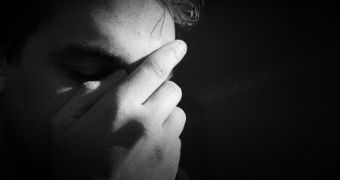In a new scientific study, a team of researchers proposes that chronic depression may be caused by a malfunctioning, natural process going on inside of the brain, as the body attempts to deal with damage the cortex may have suffered.
There is a wide variety of factors that physically reconfigure the brain, including trauma, life-changing experiences, going through pain, losing a loved one and so on.
All these influences reshape the way neurons are arranged inside the brain, and the issue with this is some nerve cells die in the process, while the remaining ones struggle to rewire themselves to fulfill their original process.
As this happens, the body triggers an automated mechanism, whose goal is to promote the healing of neurons. What the team proposes in the new study is that, when this process goes wrong, chronic depression may ensue.
“In contrast to other biological theories of depression, we started with a slightly different question,” explains Karen Wager-Smith, a post-doctoral researcher at the University of California in San Diego (UCSD) School of Medicine.
“Other theories address the question: ‘What is malfunctioning in depression?’ We took a step back and asked the question: ‘What is the biology of the proper function of the depressive response?” she adds.
“Once we had a theoretical model for the biology of a well-functioning depressive response, it helped make sense of all the myriad differences between depressed and non-depressed subjects that the biomedical approach has painstakingly amassed,” the expert adds.
She conducted to work with UCSD psychiatry professor Athina Markou, PhD. If the results turn out to be true, the new theory could prompt a large-scale shift in the way healthcare experts look at and understand depression.
The group says that, when healing goes on in the brain, the process can become debilitating even when everything is going well. Imagine what would happen if something went wrong as neurons healed.
“It’s necessary and normal so that an individual can adapt, change behavior and deal with altered circumstances,” Markou explains.
She adds that the main issues are felt “when these restructuring processes go into overdrive, beyond what is necessary and adaptive, and for longer periods of time than needed. Then depression becomes pathological.”
The new investigation was funded by the US National Institutes of Health (NIH) National Research Service Award, and also via a grant from the National Institute of Mental Health (NIMH), Science Blog reports.

 14 DAY TRIAL //
14 DAY TRIAL //